Zeppo Marx

Comedian • Actor • Engineer
Birth Date: February 25, 1901
Death Date: November 30, 1979 — 78 years old
Birth Place: New York, New York
Siblings: Groucho Marx, Harpo Marx, Chico Marx
The handsome straight man of the Marx Brothers, Zeppo was the last to join the group and left at the height of their fame in 1933. The baby of the family, Zeppo (born Herbert) took to the stage after brother Gummo left the act in 1919. He toured with his older brothers Chico, Harpo and Groucho in vaudeville in the early 1920s. The quartet first gained national attention in the zany revue "Ill Say She Is" (1923-1925). Their long-running hit "The Cocoanuts" (1925-1928), written by George S. Kaufman with an Irving Berlin score, assured their stardom. During the run of "The Cocoanuts," they made the independently-financed comedy "Humorisk," which was never released and has been lost.
On the strength of their next Broadway hit, "Animal Crackers" (1928-1929), the team was signed to a five-picture contract by Paramount. Although the limitations of early sound technology forced the Marxes to subdue their energetic comedy style and penchant for improvisation, the movie public flocked to "The Cocoanuts" (1929) and "Animal Crackers" (1930).
The final three Marx Brothers Paramount releases, "Monkey Business" (1931), "Horsefeathers" (1932) and "Duck Soup" (1933), did not perform well at the box office, although they are now regarded as the team's most inspired comedies. The Paramount vehicles de-emphasized typical Hollywood storylines and romantic subplots, simply providing screen space for the Marxes to perform their routines. The nearly plotless "Monkey Business" features them as shipboard stowaways who wreak havoc on a luxury liner, while "Horsefeathers" is a similar free-form romp through a college campus while "Duck Soup," usually considered the team's absurdist masterpiece, is a satire on the politics of war, as the brothers run the country of Freedonia into the ground.
By the time the brothers left Paramount for MGM in 1935, Zeppo had left the act and posterity has downplayed his impact on the group. "He was a lousy actor, and he got out as soon as he could," was Groucho's unfair assessment. Zeppo did tend to get lost in the chaos; the only normal-looking brother (he used no special make-up, wig or costume), he represented the voice of normality. Taking his brothers' antics perfectly seriously, Zeppo provided a bridge between the "real world" of the other characters and the Marxian world of his brothers. A handsome and affable actor, on his own Zeppo might have been as competent a juvenile lead as David Manners or Charles Starrett.
While Zeppo did not share the later radio and TV fame of his brothers, he also did not share the eventual downslide of the lesser films (Zeppo never made a bad movie, which is more than Groucho could say). After leaving the act, he became an airplane parts manufacturer and citrus grower. In 1937, he and Gummo opened a successful talent agency, Marx, Miller & Marx. Zeppo was the last of the brothers to die, in 1979.
Credits

Comedy Legends
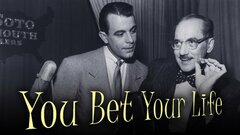
You Bet Your LifeStream
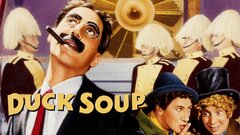
Duck SoupStream
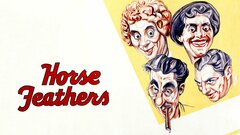
Horse Feathers
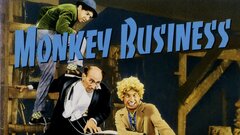
Monkey Business
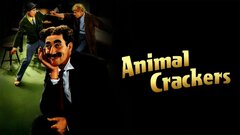
Animal CrackersStream

The Cocoanuts












































